10 things you should know about Green City Kigali and their importance
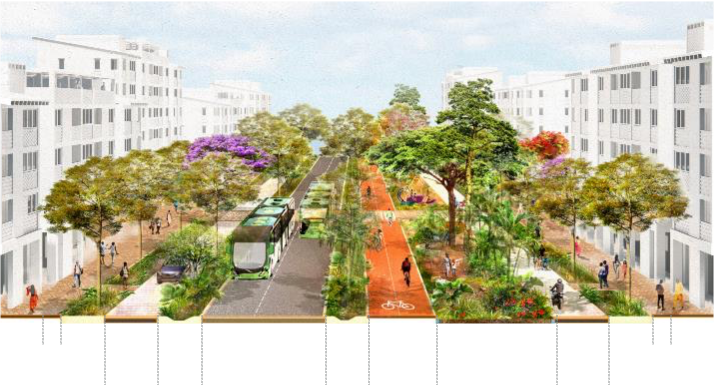
Green City Kigali is an innovative project set to transform Kigali in a fully green city, promoting sustainability, driving economic growth and enhancing the quality of life for all residents. City of Kigali Said.
Here are 10 things to know about this groundbreaking development:
- The Green City Kigali in Kinyinya will cover 600 hectares, with 55% dedicated to public spaces.
The Green City Kigali Project would create a sustainable and eco-friendly urban environment in Kinyinya, focusing on enhancing green spaces, improving community access, and promoting a healthy lifestyle for residents. The project would also emphasize renewable energy, efficient waste management, and sustainable transportation solutions.
- A massive Kinyinya Forest Eco-Park will be created.
Creating a massive Kinyinya Forest Eco-Park would provide numerous benefits, such as preserving biodiversity, offering recreational spaces for residents, and promoting environmental education.

- 40% of the housing will be affordable, making Kinyinya more inclusive.
Ensuring that 40% of the housing in Kinyinya is affordable would significantly enhance community inclusivity and improve access to housing for various income levels.
- 50,000 jobs are expected to be generated.
These jobs will be created throughout various phases of the project, from construction to the ongoing operation and maintenance of the green infrastructure. The job opportunities will likely span multiple sectors, including construction, renewable energy, environmental management, urban planning, and more. And hence, contributing to economic growth of residents and beyond.
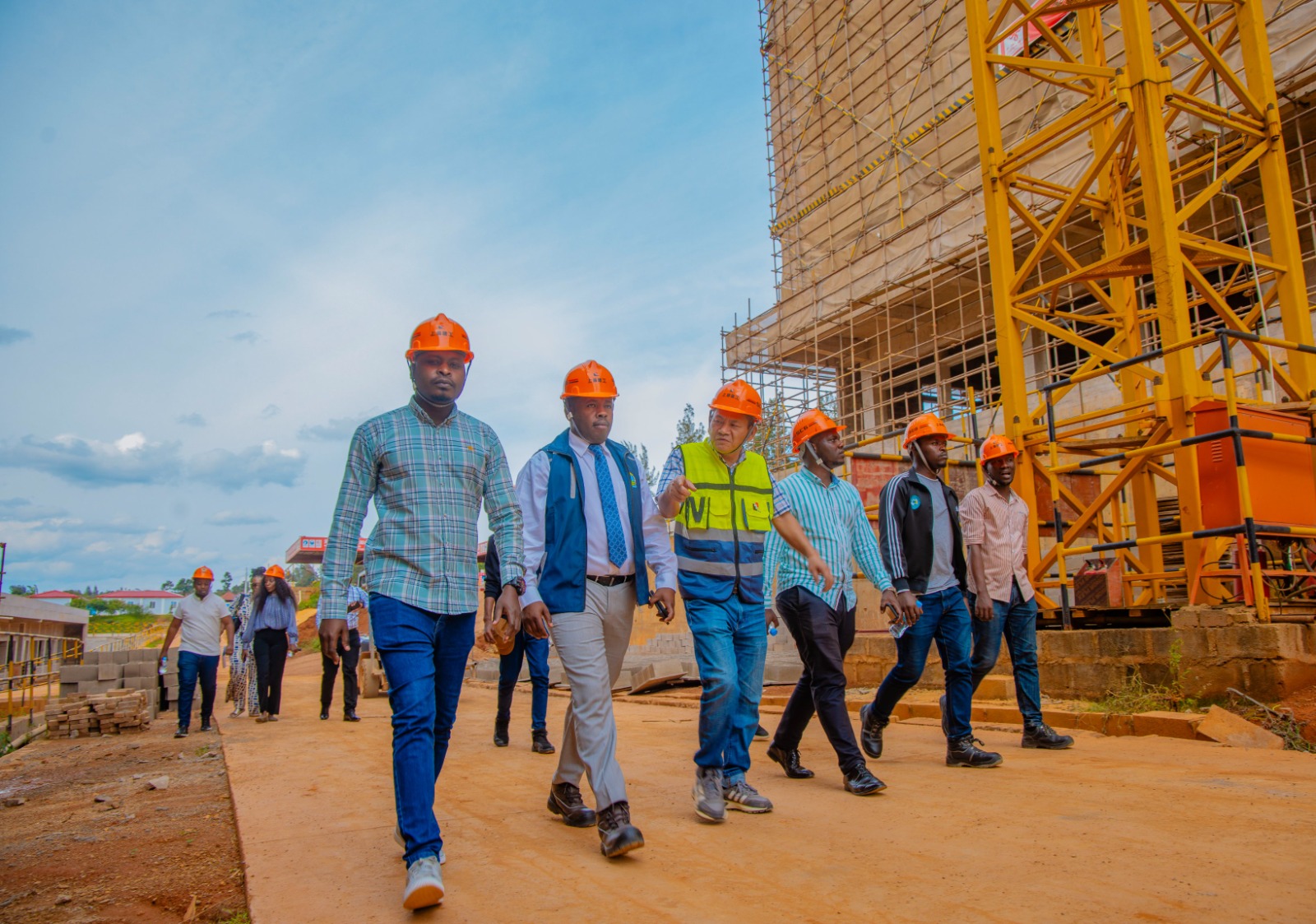
- The mobility network will include non-motorized transport lanes, bike stations, and public transport buses to promote sustainable mobility.
The mobility network in the Green City Kigali project is designed to prioritize sustainable transport options. It will include non-motorized lanes, bike stations, and public transport buses, all aimed at reducing reliance on private vehicles and minimizing carbon emissions. It will provide safe and accessible paths for pedestrians and cyclists, encouraging walking and cycling as primary modes of transport within the city.
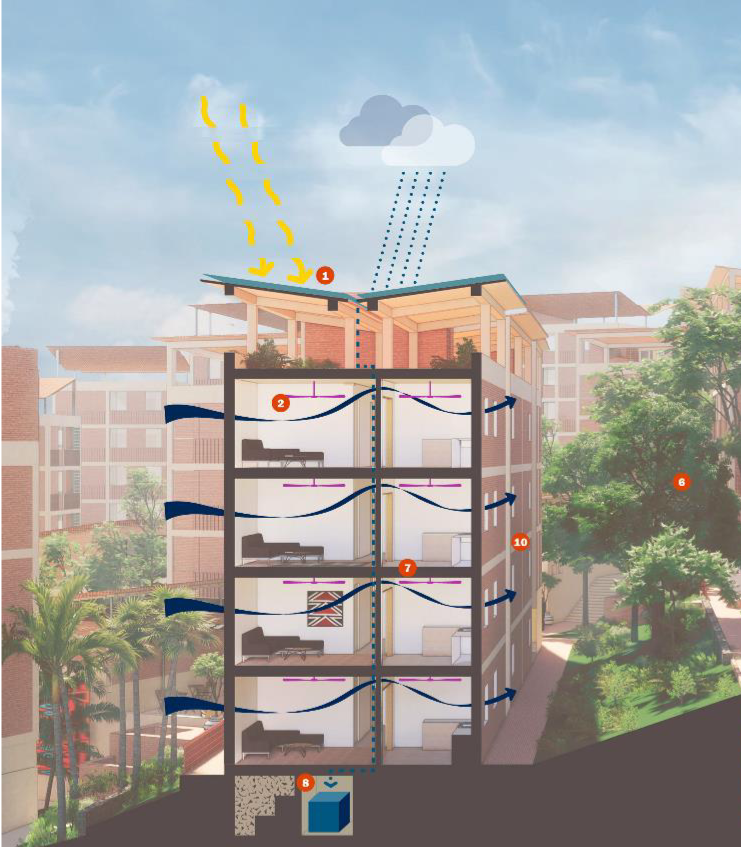
- Walkable communities will be designed to connect residents to key services.
These communities are designed to seamlessly connect residents to essential services and amenities and will be structured to ensure that key services such as schools, healthcare facilities, markets, and recreational areas are within walking distance, reducing the need for motorized transport. This design approach fosters a sense of community, encourages physical activity, and contributes to a healthier lifestyle for residents. By making essential services easily accessible on foot, the project also would reduce traffic congestion and lower carbon emissions, aligning with its broader goals of sustainability and environmental stewardship.
- Nature-based infrastructure will be implemented, including rainwater harvesting and green energy initiatives.
The project will implement systems to collect and store rainwater, which can be used for various purposes such as irrigation, reducing the demand on the city’s water supply. This not only conserves water but also helps manage stormwater runoff, reducing the risk of flooding and erosion.
The development will also, prioritize renewable energy sources, such as solar power, to meet the energy needs of the community. Buildings within the Green City will be equipped with solar panels and other energy-efficient technologies, reducing reliance on non-renewable energy and minimizing the overall carbon footprint of the development.
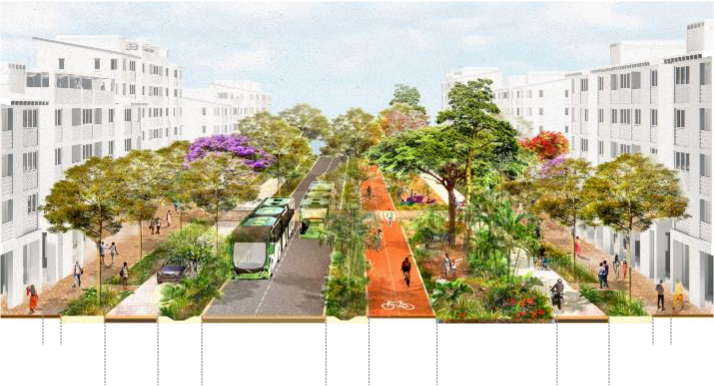
- Public facilities such as schools and health centers will be integrated into each neighbourhood.
This is a crucial aspect of urban planning, particularly in projects like Green City Kigali. This approach will insure that residents have easy access to essential services, fostering a more inclusive and cohesive community.
- Low-carbon buildings will be promoted by employing passive design principles.
In the Green City Kigali project, low-carbon buildings will be a central focus, achieved through the implementation of passive design principles. These principles aim to reduce the buildings’ energy consumption and carbon footprint by utilizing natural resources and optimizing building design.
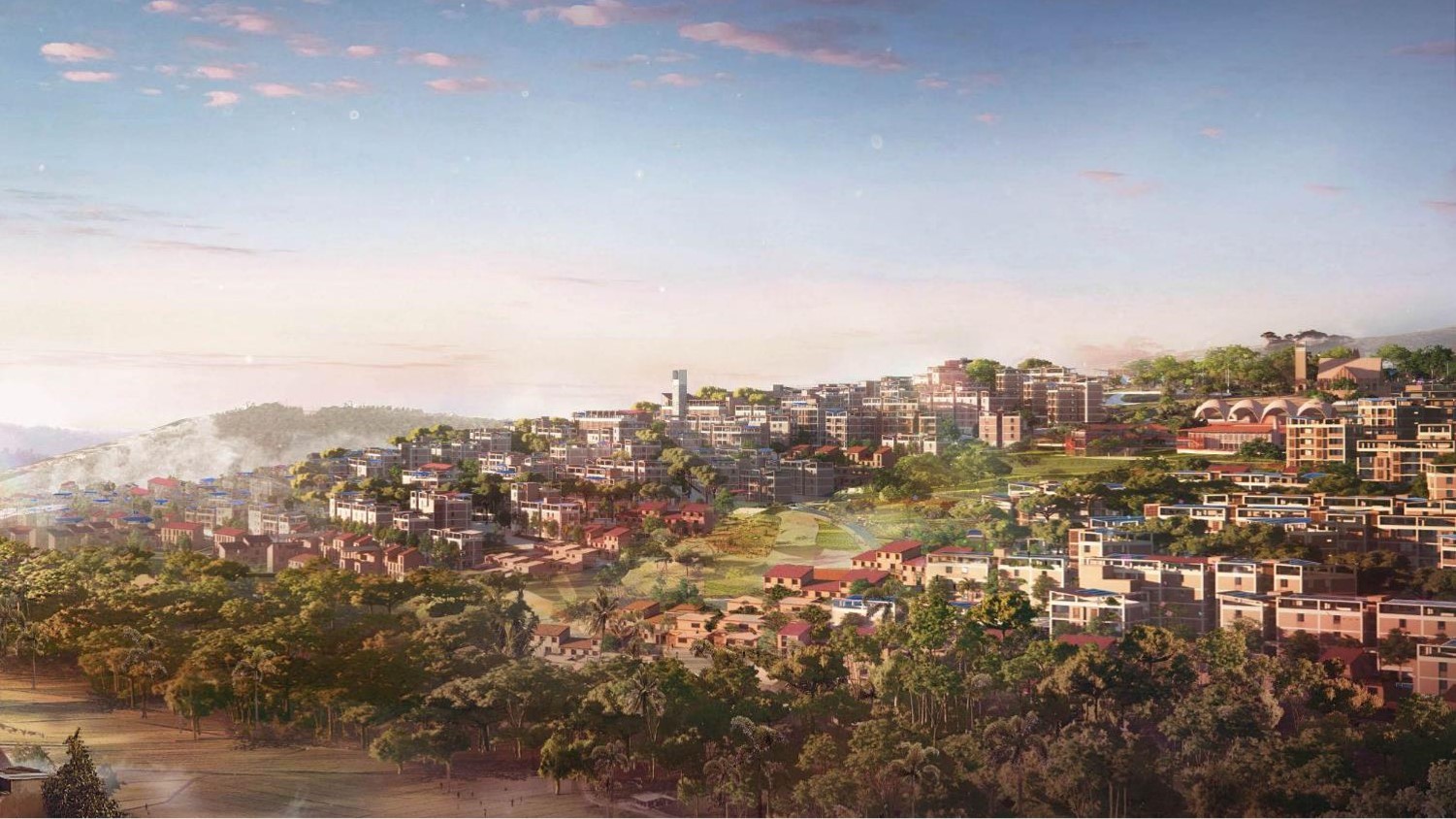
- A network of blue-green corridors for biodiversity will link the hills to the wetlands.
A network of blue-green corridors can greatly enhance biodiversity by creating pathways for wildlife to move between habitats. In a city like Kigali, where urban development is expanding, these corridors can help maintain ecological balance. By linking hills to wetlands, this network would support various species, provide critical ecosystems services, and improve overall environmental health. Such corridors would include parks, green roofs, rain gardens, and restored wetlands that not only enhance biodiversity but also provide recreational opportunities for residents and tourists.
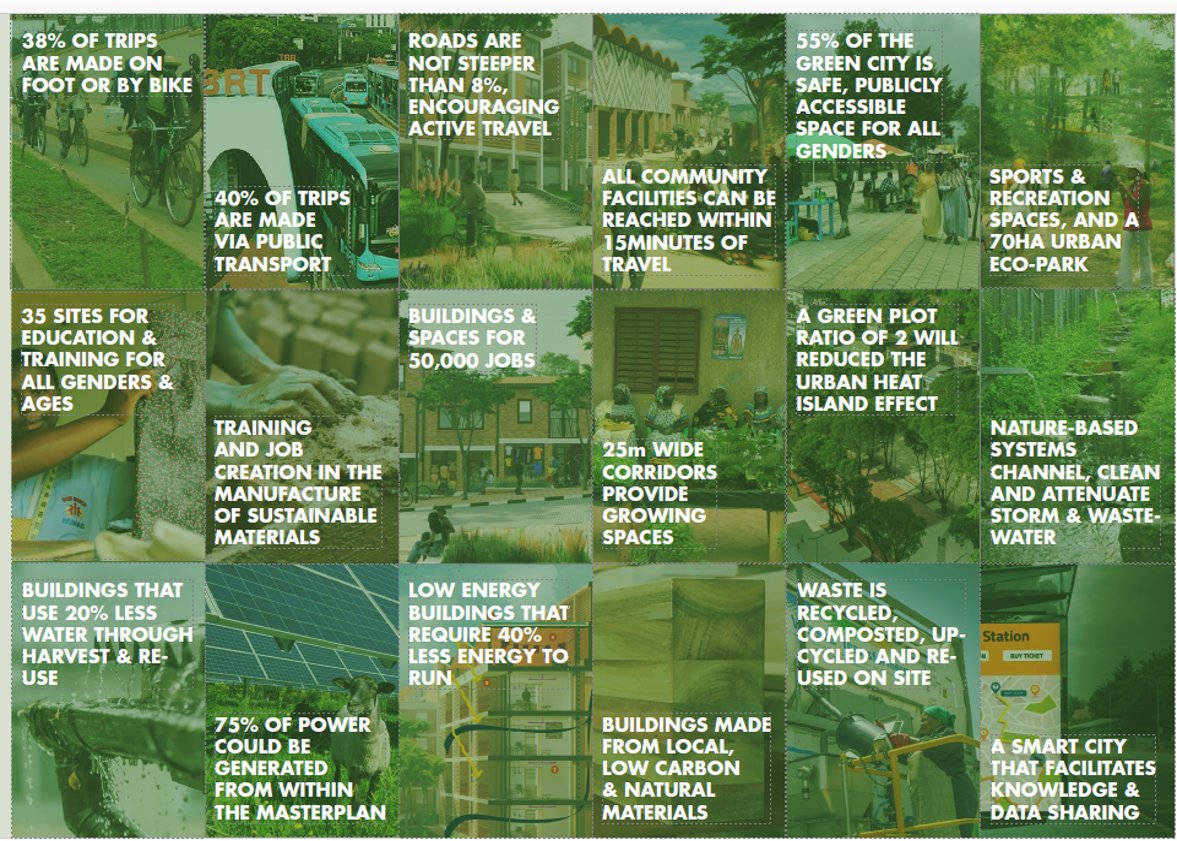
Related Articles
Global Agri & Food Safety Congress 2026: Building Resilient Food Systems in a Changing Climate
On 26–27 February 2026, international experts, researchers, industry leaders, farmers, and policymakers...
Why Animals Are a Key Piece of Africa’s Disaster Resilience Puzzle
Across Africa, people and animals have coexisted for centuries, not just sharing...
Leaders Call for Stronger Monitoring to Turn Ecosystem Restoration Commitments into Results
Nairobi, Kenya — 27 January 2026 Country and regional leaders, alongside technical...
Worm Tea: A Natural Path to Farming Without Harmful Chemicals
For much of his early farming life, Isaac Mubashankwaya believed chemical fertilizers...





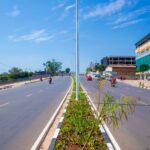





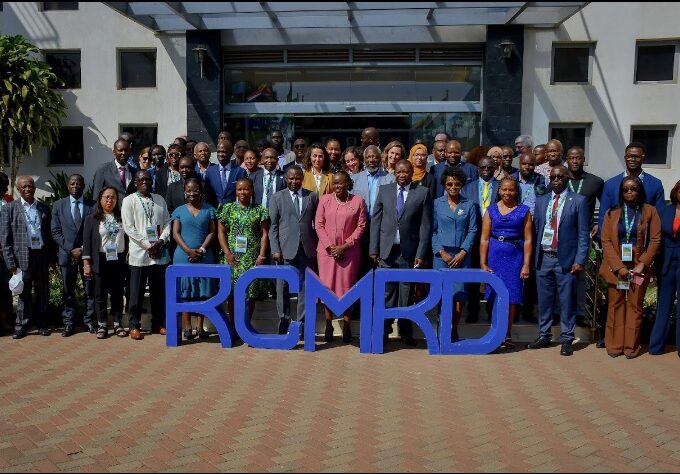
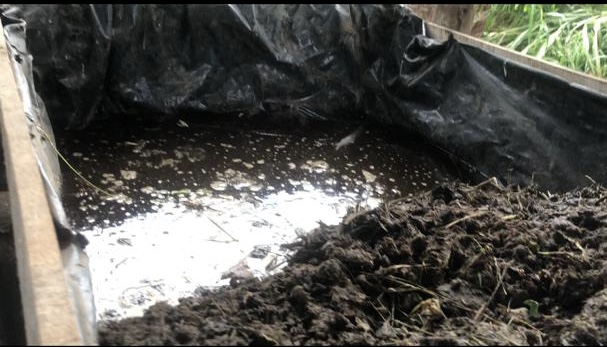
Leave a comment